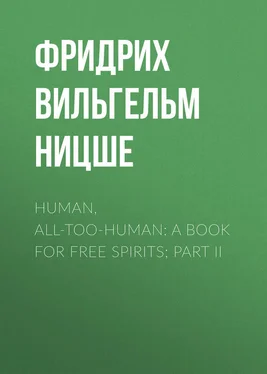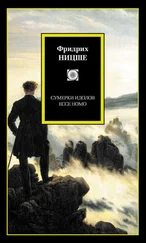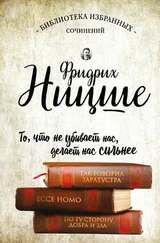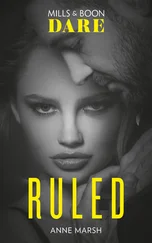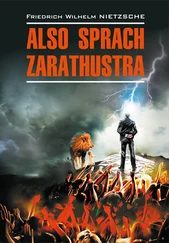Фридрих Ницше - Human, All-Too-Human - A Book For Free Spirits; Part II
Здесь есть возможность читать онлайн «Фридрих Ницше - Human, All-Too-Human - A Book For Free Spirits; Part II» — ознакомительный отрывок электронной книги совершенно бесплатно, а после прочтения отрывка купить полную версию. В некоторых случаях можно слушать аудио, скачать через торрент в формате fb2 и присутствует краткое содержание. Жанр: Философия, literature_19, foreign_antique, foreign_prose, на английском языке. Описание произведения, (предисловие) а так же отзывы посетителей доступны на портале библиотеки ЛибКат.
- Название:Human, All-Too-Human: A Book For Free Spirits; Part II
- Автор:
- Жанр:
- Год:неизвестен
- ISBN:нет данных
- Рейтинг книги:3 / 5. Голосов: 1
-
Избранное:Добавить в избранное
- Отзывы:
-
Ваша оценка:
- 60
- 1
- 2
- 3
- 4
- 5
Human, All-Too-Human: A Book For Free Spirits; Part II: краткое содержание, описание и аннотация
Предлагаем к чтению аннотацию, описание, краткое содержание или предисловие (зависит от того, что написал сам автор книги «Human, All-Too-Human: A Book For Free Spirits; Part II»). Если вы не нашли необходимую информацию о книге — напишите в комментариях, мы постараемся отыскать её.
Human, All-Too-Human: A Book For Free Spirits; Part II — читать онлайн ознакомительный отрывок
Ниже представлен текст книги, разбитый по страницам. Система сохранения места последней прочитанной страницы, позволяет с удобством читать онлайн бесплатно книгу «Human, All-Too-Human: A Book For Free Spirits; Part II», без необходимости каждый раз заново искать на чём Вы остановились. Поставьте закладку, и сможете в любой момент перейти на страницу, на которой закончили чтение.
Интервал:
Закладка:
Against the Disparagers of Brevity. – A brief dictum may be the fruit and harvest of long reflection. The reader, however, who is a novice in this field and has never considered the case in point, sees something embryonic in all brief dicta, not without a reproachful hint to the author, requesting him not to serve up such raw and ill-prepared food.
Against the Short-Sighted. – Do you think it is piece-work because it is (and must be) offered you in pieces?
Readers of Aphorisms. – The worst readers of aphorisms are the friends of the author, if they make a point of referring the general to the particular instance to which the aphorism owes its origin. This namby-pamby attitude brings all the author's trouble to naught, and instead of a philosophic lesson and a philosophic frame of mind, they deservedly gain nothing but the satisfaction of a vulgar curiosity.
Readers' Insults. – The reader offers a two-fold insult to the author by praising his second book at the expense of his first (or vice versa ) and by expecting the author to be grateful to him on that account.
The Exciting Element in the History of Art. – We fall into a state of terrible tension when we follow the history of an art – as, for example, that of Greek oratory – and, passing from master to master, observe their increasing precautions to obey the old and the new laws and all these self-imposed limitations. We see that the bow must snap, and that the so-called “loose” composition, with the wonderful means of expression smothered and concealed (in this particular case the florid style of Asianism), was once necessary and almost beneficial .
To the Great in Art. – That enthusiasm for some object which you, O great man, introduce into this world causes the intelligence of the many to be stunted. The knowledge of this fact spells humiliation. But the enthusiast wears his hump with pride and pleasure, and you have the consolation of feeling that you have increased the world's happiness.
Conscienceless Æsthetes. – The real fanatics of an artistic school are perhaps those utterly inartistic natures that are not even grounded in the elements of artistic study and creation, but are impressed with the strongest of all the elementary influences of an art. For them there is no æsthetic conscience – hence nothing to hold them back from fanaticism.
How the Soul should be Moved by the New Music. – The artistic purpose followed by the new music, in what is now forcibly but none too lucidly termed “endless melody,” can be understood by going into the sea, gradually losing one's firm tread on the bottom, and finally surrendering unconditionally to the fluid element. One has to swim . In the previous, older music one was forced, with delicate or stately or impassioned movement, to dance . The measure necessary for dancing, the observance of a distinct balance of time and force in the soul of the hearer, imposed a continual self-control. Through the counteraction of the cooler draught of air which came from this caution and the warmer breath of musical enthusiasm, that music exercised its spell. – Richard Wagner aimed at a different excitation of the soul, allied, as above said, to swimming and floating. This is perhaps the most essential of his innovations. His famous method, originating from this aim and adapted to it – the “endless melody” – strives to break and sometimes even to despise all mathematical equilibrium of time and force. He is only too rich in the invention of such effects, which sound to the old school like rhythmic paradoxes and blasphemies. He dreads petrifaction, crystallisation, the development of music into the architectural. He accordingly sets up a three-time rhythm in opposition to the double-time, not infrequently introduces five-time and seven-time, immediately repeats a phrase, but with a prolation, so that its time is again doubled and trebled. From an easy-going imitation of such art may arise a great danger to music, for by the side of the superabundance of rhythmic emotion demoralisation and decadence lurk in ambush. The danger will become very great if such music comes to associate itself more and more closely with a quite naturalistic art of acting and pantomime, trained and dominated by no higher plastic models; an art that knows no measure in itself and can impart no measure to the kindred element, the all-too-womanish nature of music.
Poet and Reality. – The Muse of the poet who is not in love with reality will not be reality, and will bear him children with hollow eyes and all too tender bones.
Means and End. – In art the end does not justify the means, but holy means can justify the end.
The Worst Readers. – The worst readers are those who act like plundering soldiers. They take out some things that they might use, cover the rest with filth and confusion, and blaspheme about the whole.
Signs of a Good Writer. – Good writers have two things in common: they prefer being understood to being admired, and they do not write for the critical and over-shrewd reader.
The Mixed Species. – The mixed species in art bear witness to their authors' distrust of their own strength. They seek auxiliary powers, advocates, hiding-places – such is the case with the poet who calls in philosophy, the musician who calls in the drama, and the thinker who calls in rhetoric to his aid.
Shutting One's Mouth. – When his book opens its mouth, the author must shut his.
Badges of Rank. – All poets and men of letters who are in love with the superlative want to do more than they can.
Cold Books. – The deep thinker reckons on readers who feel with him the happiness that lies in deep thinking. Hence a book that looks cold and sober, if seen in the right light, may seem bathed in the sunshine of spiritual cheerfulness and become a genuine soul-comforter.
A Knack of the Slow-Witted. – The slow-witted thinker generally allies himself with loquacity and ceremoniousness. By the former he thinks he is gaining mobility and fluency, by the latter he gives his peculiarity the appearance of being a result of free will and artistic purpose, with a view to dignity, which needs slow movement.
Le Style Baroque. 11– He who as thinker and writer is not born or trained to dialectic and the consecutive arrangement of ideas, will unconsciously turn to the rhetoric and dramatic forms. For, after all, his object is to make himself understood and to carry the day by force, and he is indifferent whether, as shepherd, he honestly guides to himself the hearts of his fellow-men, or, as robber, he captures them by surprise. This is true of the plastic arts as of music: where the feeling of insufficient dialectic or a deficiency in expression or narration, together with an urgent, over-powerful impulse to form, gives birth to that species of style known as “baroque.” Only the ill-educated and the arrogant will at once find a depreciatory force in this word. The baroque style always arises at the time of decay of a great art, when the demands of art in classical expression have become too great. It is a natural phenomenon which will be observed with melancholy – for it is a forerunner of the night – but at the same time with admiration for its peculiar compensatory arts of expression and narration. To this style belongs already a choice of material and subjects of the highest dramatic tension, at which the heart trembles even when there is no art, because heaven and hell are all too near the emotions: then, the oratory of strong passion and gestures, of ugly sublimity, of great masses, in fact of absolute quantity per se (as is shown in Michael Angelo, the father or grandfather of the Italian baroque stylists): the lights of dusk, illumination and conflagration playing upon those strongly moulded forms: ever-new ventures in means and aims, strongly underscored by artists for artists, while the layman must fancy he sees an unconscious overflowing of all the horns of plenty of an original nature-art: all these characteristics that constitute the greatness of that style are neither possible nor permitted in the earlier ante-classical and classical periods of a branch of art. Such luxuries hang long on the tree like forbidden fruit. Just now, when music is passing into this last phase, we may learn to know the phenomenon of the baroque style in peculiar splendour, and, by comparison, find much that is instructive for earlier ages. For from Greek times onward there has often been a baroque style, in poetry, oratory, prose writing, sculpture, and, as is well known, in architecture. This style, though wanting in the highest nobility, – the nobility of an innocent, unconscious, triumphant perfection, – has nevertheless given pleasure to many of the best and most serious minds of their time. Hence, as aforesaid, it is presumptuous to depreciate it without reserve, however happy we may feel because our taste for it has not made us insensible to the purer and greater style.
Читать дальшеИнтервал:
Закладка:
Похожие книги на «Human, All-Too-Human: A Book For Free Spirits; Part II»
Представляем Вашему вниманию похожие книги на «Human, All-Too-Human: A Book For Free Spirits; Part II» списком для выбора. Мы отобрали схожую по названию и смыслу литературу в надежде предоставить читателям больше вариантов отыскать новые, интересные, ещё непрочитанные произведения.
Обсуждение, отзывы о книге «Human, All-Too-Human: A Book For Free Spirits; Part II» и просто собственные мнения читателей. Оставьте ваши комментарии, напишите, что Вы думаете о произведении, его смысле или главных героях. Укажите что конкретно понравилось, а что нет, и почему Вы так считаете.
